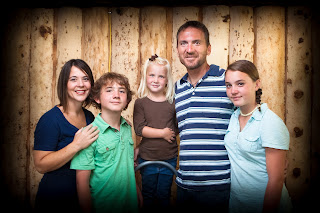If I Had the Time (and Money)

The New Canaan Society is a group of men (they call themselves 'brudders') who meet on a weekly basis. Its not a church group, a bible study, an accountability group, a speaker forum or a men’s fellowship. It’s just men joined by the common desire to experience deep and lasting friendships, with each other and with Jesus. You can read about how the group got started here. They have speakers like Os Guinness, Luis Palau, Tim Keller, Miroslav Volf, Chuck Colson, Rick Warren and Dave Dravecky. Plus the guys that MC--Skip Bowlinski and Eric Metaxas--are ridiculously funny. There is an infectious joy about these guys that seems to be (happily) contagious. Their love for Christ is spreading. There are NCS chapters popping up all over the place. Each year they have a retreat. This year it is March 5th-7th in Hot Springs, VA. If I had the time (and money) I'd go with some guy friends (you know what I mean). James Hunter is one of the speakers. I've read his work since college and am challenged by him even at points where I disagreed with him. John Seel gives a synopsis of the theme of the retreat.
What "Faithful Presence" Means
By Dr. John Seel
Faithful presence means leading the league in assists.
John Stockton is the all-time NBA leader with 15,806 assists. He didn't merely know how to pass the ball -- any player can do that. What makes an assist leader is the ability to see the entire court, or field of play. With this skill, they distribute the ball with pinpoint passes that players easily turn into points. That's why assist leaders command respect. They serve others. John Stockton epitomized this to near perfection.
Faithful presence is when the church leads the league in assists and everyone wins, even if the church doesn't lead the league in scoring. It is when culture-shaping institutions in the wider world respond to the church and respect it. It is what the Bible calls flourishing or shalom.
In his forthcoming book, To Change The World: The Irony, Tragedy, and Possibility of Christianity in the Late Modern World, James Hunter calls the church to adopt a public posture of faithful presence. He writes, "A theology of faithful presence calls Christians to enact the shalom of God in the circumstances in which God has placed them and to actively seek it on behalf of others." Faithful presence is not the starting point of Hunter's book, but its conclusion. Two-thirds of the book is devoted to understanding how culture is changed and the appropriate role of power in this process. Coming to faithful presence requires first clearing years of erroneous assumptions. It's a new paradigm, not a new program.
Faithful presence is contrasted to three other postures towards public life -- what Hunter calls "paradigms of engagement" -- that have been adopted by the church in the recent past. Faithful presence can be clarified by underscoring what it is not.
It's not a defensive enclave set against the world. For those who adopt this vision the main problem is secularity, "if only God could be re-enshrined in the social order the culture would be restored." One can think of this as a lament over lost market share.
It's not relevance to culture, where the priority is being connected to the pressing issues of the day or the felt-needs of the person in the pew or more importantly the felt-needs of the nonbeliever. This posture focuses its sharpest critique not on contemporary culture but on the established church. One can think of this as a branding crisis.
And finally, it's not purity from culture, where active engagement in culture is abandoned for a call to authentic witness. This posture adopts the view that the "church has no other obligation other than to be itself." While expressed in many different ways and through various traditions, it feeds on the logic of "us-against-them." One can think of this as a new monasticism.
In contrast, the foundation of faithful presence is the incarnation and Jesus' example of "pursuit, identification, and offer of life through sacrificial love." The same should be evident in our relationships with others, in the exercise of our vocations, and in the spheres of our public influence. "What this means," writes Hunter, "is that where and to the extent that we are able, faithful presence commits us to do what we can to create conditions in the structures of social life we inhabit that are conducive to the flourishing of all."
Make no mistake about what is required. The church's flourishing is tied directly to the flourishing of the community in which it lives and works. Our shalom is found in the shalom of others. This is the calling and cost of faithful presence. So it was for Jesus. So it is for the church. It works on the court just as in life.
Too bad I won't be able to make it. I guess I'll have to spring for the DVD. Did I mention that Paul Baloche and Graham Kendrick are going to be leading worship?

Comments
Post a Comment